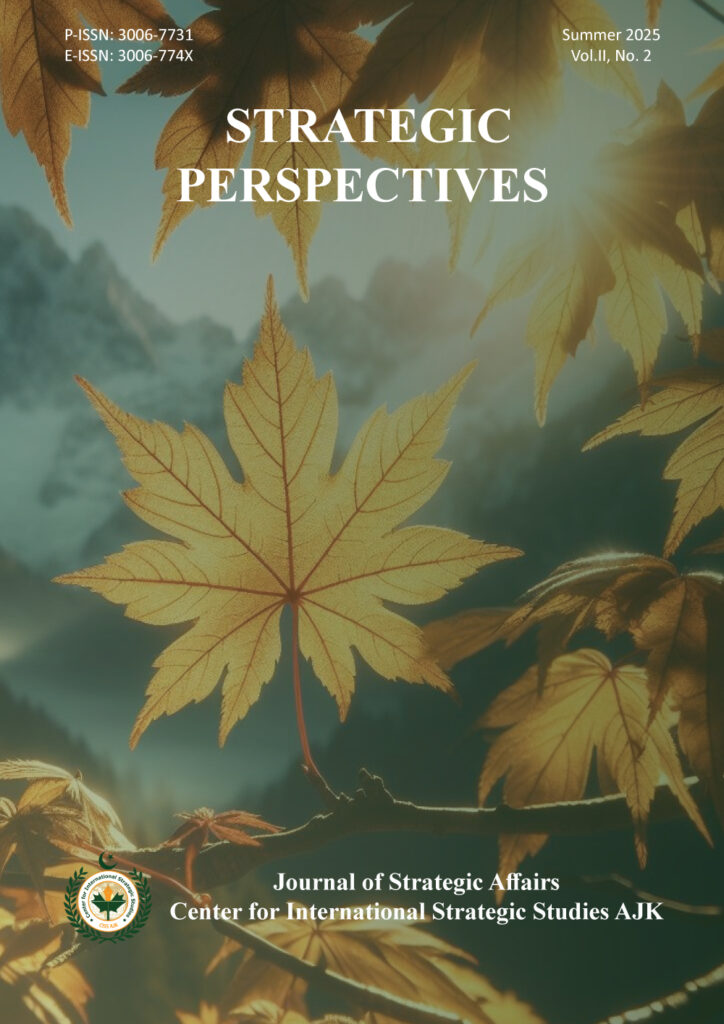Vol. II No. 2 (2025): Strategic Perspectives, Summer 2025
New Media as a Tool of Hybrid Warfare: Analyzing Pakistan’s Case
Afsah Qazi and Faiz Ali Shah

Published June 30, 2025
Abstract
The hybridity of warfare has been a long-standing phenomenon, yet the term has become more popular in recent years. Its revival has largely come in the context of misinformation and disinformation campaigns within and among states, targeted at and by varied actors in the world today. Manipulation of information has become a feature of our globalized world as communication media continuously proliferate – hence the rise of ‘New Media’. To explicate the intrinsic link of media with disinformation and hybrid conflict, this study centers on Pakistan’s case and answers the question, ‘how new media may impact Pakistan’s national security?’. It argues that the fundamental challenge lies in the possibility of new media being employed as a tool of hybrid warfare against Pakistan. The argument is qualitatively substantiated using existing academic literature and primary factual data collected from new media platforms (primarily X (formerly twitter) and You Tube between 2021-2023. The data-based-findings helped to establish how new media is already being employed for subversive purposes in and against Pakistan. The argument seeks theoretical support from Shaw and McComb’s agenda-setting theory that emphasized traditional media’s ability to influence, direct, and shape perception regarding what issues are ‘imminent’ and ‘important’ while relegating others down the agenda. Comparably, New Media’s agenda-setting potential allows faster spread of mis- and disinformation (without credibility checks) – thus posing a hybrid challenge. The study is significant in terms of clearly establishing this equation between New Media and hybrid warfare – that may be replicable to cases of other states and societies.
Key Words
New Media, Hybrid Warfare, Agenda-setting, Misinformation, Fake News
